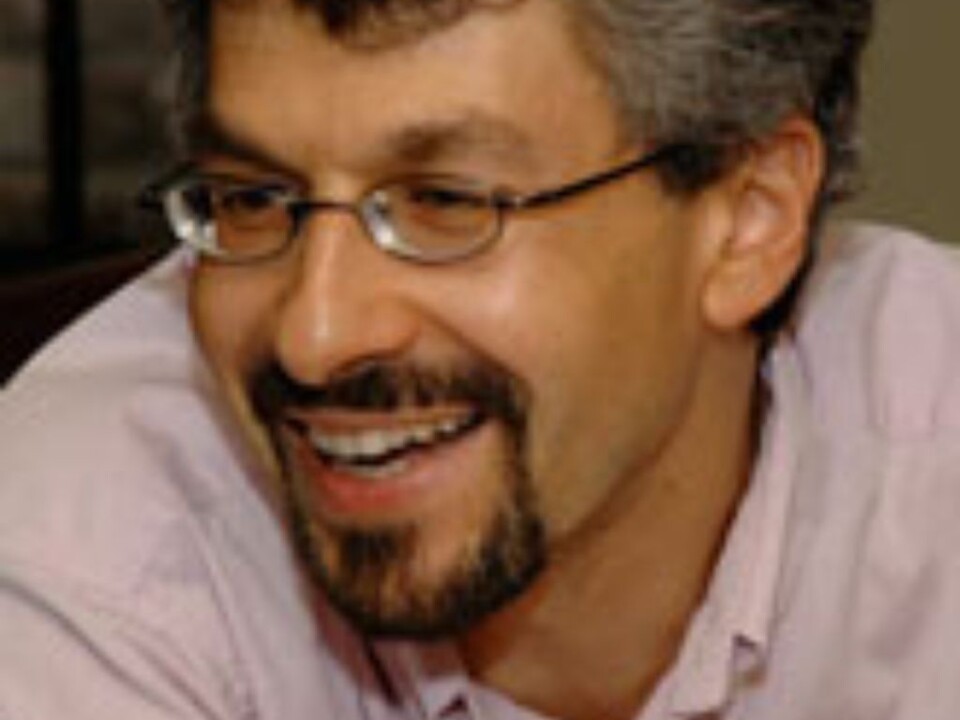An article from The Norwegian National Committees for Research Ethics
Voicing concern that industry funding distorts academic research
Director of bioethics program urges researchers to look at how money from the industry influences their work.
“One can’t really find an academic research institution these days without a complex web of relationships with industry,” says Jonathan Marks.
“Various explanations are given for this, including declining public funds for research.”
Jonathan Marks is director of the bioethics programme at Penn State University, where he has conducted extensive research on industry-academy relations.
Systemic effects
He argues that much of the research done on industry-sponsored research to date, and many of the policy responses, have put too much emphasis on individual researchers’ financial conflicts of interest and funding effects, while ignoring other systemic issues.
An often-raised concern has been that a particular PI of a study at the same time works as a consultant for the company whose products are the subject of the research. The literature also tends to focus on what has been called the funding effect, the correlation between industry sponsorship of research and outcomes that are favourable to those sponsors.
“For me this is only one small piece of the larger picture,” says Marks.
“The kinds of questions I am interested in, are how the industry sponsorship of research shapes the kinds of questions that get asked, as well as how they get asked – and answered – and also determines to some extent the questions that get ignored.”
Obesity research is consistent with industry interests
Marks addresses some broad systemic concerns.

“As we, in the academy, become more interwoven with industry, we start to see what I call framing effects, a shift in the way we start to understand social problems,” he says.
Marks uses obesity as a contemporary example of a pressing social problem.
“What you find, increasingly, is a description of that problem as one of individual responsibility and consumer choice: If only we can get people to eat better, behave better, exercise better, we can solve obesity.”
“I am not saying that individual behaviour is irrelevant. What I am arguing is that this framing, and emphasis on individual behavior, is one which happens to be incredibly consistent with the interests of a large number of industry actors, big food companies, for example.”
Shaping research
The next systemic concern Marks points out, is what he calls technological bias.
“By this I mean that we tend to prioritise solutions to social problems that are technological and readily commercialized while neglecting other kinds of solutions, and indeed other framings of social problems. An example of this is foods containing bacteria that are marketed as promoting regularity, notably Activia yoghurt.”
“So the message is: if you find yourself feeling constipated, just eat more yoghurt, rather than thinking about all the other things in your diet that maybe contributing to that.”
You may have seen commercials for satiety supplements on television. These are powders you sprinkle on your Big Mac and fries to create a sensation of feeling full.
“In my view, that is very conspicuous as a commercial solution to a social problem, one that ignores the systemic and environmental factors that lead people to consume certain kinds of food in certain kinds of ways,” Marks says.
Funding priorities
The third systemic concern Marks points to, is funding priorities.
“This means that if there is industry money to look at 'x', that is where we look,” says Marks.
And this doesn’t just affect institutional funding priorities; it also affects government funding priorities.
“In many ways, one can say with some degree of confidence that entire areas of research have been distorted, shaped or redirected in ways that advance the interests of industry.”
Surtax on industry sponsorship
But how should we handle questions on industry sponsorship of research?
Researchers like Sheldon Krimsky and Chris Robertson have both argued for a solution some call money blinds. The gold standard for clinical research is the double blind, randomized control trial, where the physician and the patient doesn’t know who is getting the drug and who is getting the placebo or the control.
The idea, Robertson argues, is to add another layer of blinding, so the industry funder doesn’t know the identity of the researcher, and the researcher doesn’t know the identity of the industry funder.
“In my view, money blinds do not solve the bigger problem that I call research agenda distortion. This is because the money is still determining the kinds of research that gets done,” Marks argues.
In other words, the industry money is still shaping the kinds of questions that get asked. Industry money leads us to ask some questions, and provides no incentive to ask the others.
This is not an easy problem to solve. However, there are things that could be done.
One, according to Marks, is to add a surtax or capitation fee to any industry-sponsored research in the academic institutions, that would go into a fund that the research institution would use to support research that counterbalances the industry-sponsored research. This counterbalancing research would explore questions that industry has no interest in exploring, as it might be entirely inimical to its commercial interests.
“If you’re getting money to explore whether Activia yoghurt improves regularity, this other pocket of money goes into a pool from which you could conduct research to explore the adverse effects of consuming Activia for its regularity benefits,” Marks exemplifies.
Must be put on the agenda
Marks is highly concerned about the development..
“Reciprocity between the academy and the industry is one of the problems we haven’t fully addressed,” Marks says.
He stresses that even though some things are shared, many things are not, and that those divergences of interests and missions are especially important.
“I think there are no easy solutions to these questions. But the fact that solutions are difficult should not lead us to shy away from them.”
“We are deluding ourselves if we believe that we are looking fully and broadly at the solutions to important social problems, with the system we currently have. The only way we are going to address that is if we collectively, as institutions, stand up and honestly say so, together, that the current approach is problematic.”
Marks encourages academic administrators to speak up.
“I can’t tell you what will come of that process. But why on earth aren’t we trying?” queries Marks.
------------
Read the Norwegian version of this article at forskning.no































